 Petzlover
Petzlover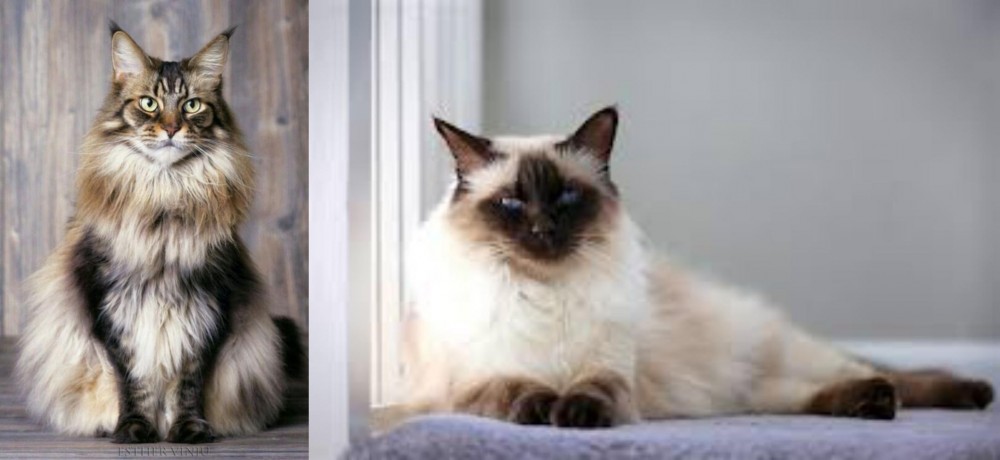 American Longhair is originated from United States but Balinese is originated from Thailand. Both American Longhair and Balinese are having almost same weight. Both American Longhair and Balinese has almost same life span. Both American Longhair and Balinese has same litter size. American Longhair requires Moderate Maintenance. But Balinese requires Low Maintenance
American Longhair is originated from United States but Balinese is originated from Thailand. Both American Longhair and Balinese are having almost same weight. Both American Longhair and Balinese has almost same life span. Both American Longhair and Balinese has same litter size. American Longhair requires Moderate Maintenance. But Balinese requires Low Maintenance
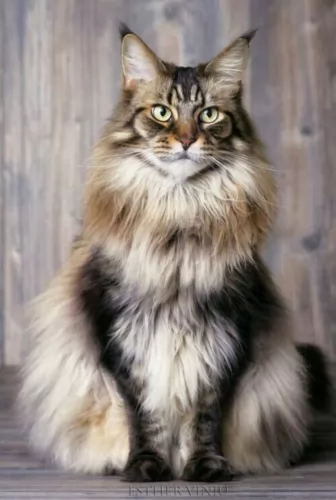 The handsome American Longhair cat is thought to be the result of attempts by breeders to have a cat that portrayed some Persian varieties.
The handsome American Longhair cat is thought to be the result of attempts by breeders to have a cat that portrayed some Persian varieties.
American shorthairs have characteristics and looks from both breeds. The American Longhair, although it comes from champion bloodlines, isn’t actually recognized by larger cat organizations.
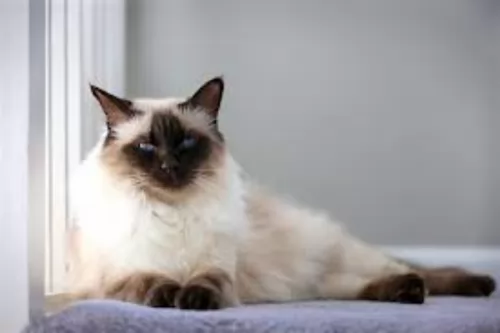 The slender Balinese cat is a cat similar in looks to the Siamese cat but fluffier. In fact, in the 1950s, Siamese breeders in the United States discovered that the kittens were fluffier than what a Siamese cat should be.
The slender Balinese cat is a cat similar in looks to the Siamese cat but fluffier. In fact, in the 1950s, Siamese breeders in the United States discovered that the kittens were fluffier than what a Siamese cat should be.
The fur was too long to conform to Siamese cat standards. Two Siamese breeders, Helen Smith and Marion Dorsey loved the look of the longer-haired Siamese with the idea being to name the breed the Longhair Siamese. Siamese breeders didn’t want this and the name became Balinese.
The Balinese cat has been recognized by many cat registries and associations.
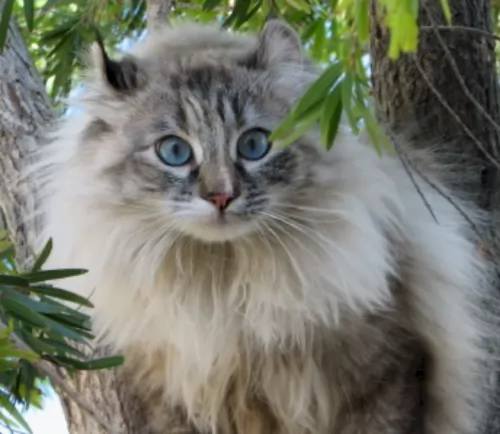 You’ll find that there are quite a few American Longhairs that have the snub nose of the Persian cat which is part of its ancestry.
You’ll find that there are quite a few American Longhairs that have the snub nose of the Persian cat which is part of its ancestry.
This is a well-muscled, medium to large sized athletic cat with a thick double coat of many colors and patterns that sheds fairly heavily.
This isn’t a particularly vocal cat, but in true cat-fashion, it is independent and doesn’t require a lot of attention.
This cat will make a nice companion for older people and it is calm enough to enjoy a leisurely stroll outdoors with a harness on. They’re adaptable to different situations, but the American Longhair isn’t the ideal choice for children as it isn’t your playful, lover of noise and games type of cat, preferring the attention of other animals.
They love going into barns and being buffeted and licked by the cows and other barnyard animals.
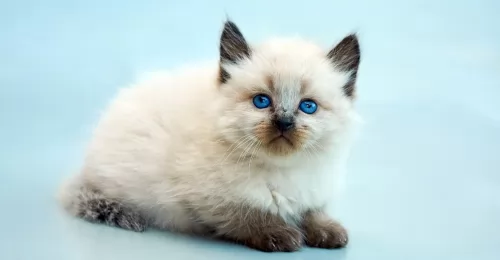 The medium-sized Balinese has a long, slender, finely built body with the head being long and triangular.
The medium-sized Balinese has a long, slender, finely built body with the head being long and triangular.
The eyes of the cat are slanted and a deep blue.
The coat is medium in length and is soft and silky without an undercoat. The coat length is pretty much all that distinguishes this cat from the siamese cat. The coat is pointed which means you’ll find concentrations of color – cream, red and tortoiseshell on the face, ears, legs and the plumed tail.
Your Balinese is a talkative cat and he is active and playful too. Because it is such an intelligent cat, it can learn tricks too.
They are affectionate cats and bond closely with their human family. They crave lots of attention and don’t like being left alone for long periods of time. They’re chatty cats too and love to leap up onto high perches and look down on their world.
If you have a Balinese as a pet, you will certainly have to invest in climbing equipment.
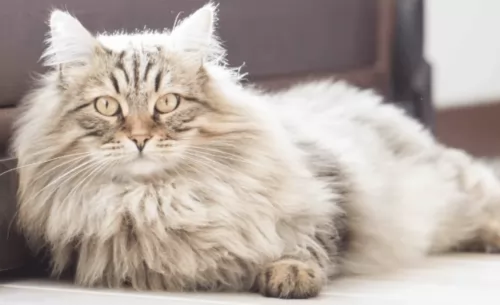 Your American Longhair is an easy-going, friendly social cat that doesn’t demand a lot from his human owners.
Your American Longhair is an easy-going, friendly social cat that doesn’t demand a lot from his human owners.
These cats are intelligent too and you can even teach them a trick or two. They enjoy the company of their humans and will even follow you around.
Bringing one into your home promises to be a rewarding pet-ownership experience.
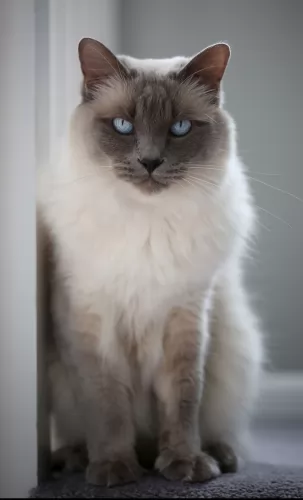 Your Balinese cat is a friendly, affectionate cat that will bond closely with his human family.
Your Balinese cat is a friendly, affectionate cat that will bond closely with his human family.
They’re the kind of cats that enjoy having their family members around them and they don’t like being left alone for long periods.
He is a playful cat so make sure that he has some nice toys that will keep him amused. They’re known for their intelligence and their inquisitive and playful natures, not to mention that these cats are easy on the eye as well.
Vocal and demanding, if you want someone who demands your friendship, then take a look at these beautiful Balinese cats.
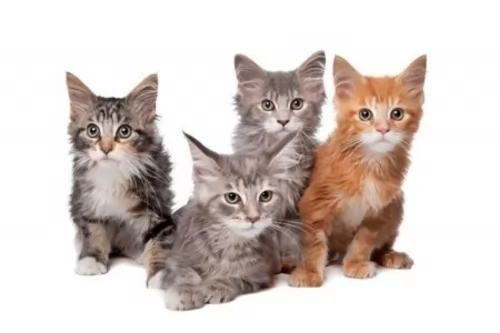 The American Longhair doesn’t have many health concerns and you can expect him to live up to 18, 19 or 20 years of age with good care.
The American Longhair doesn’t have many health concerns and you can expect him to live up to 18, 19 or 20 years of age with good care.
There are some American Longhairs that come with that shortened face of the Persian, and this may mean him battling with breathing problems.
Also, be aware of Polycystic kidney disease where you get cysts that form in the kidneys and which can become larger over time and eventually affect kidney function, leading to kidney failure.
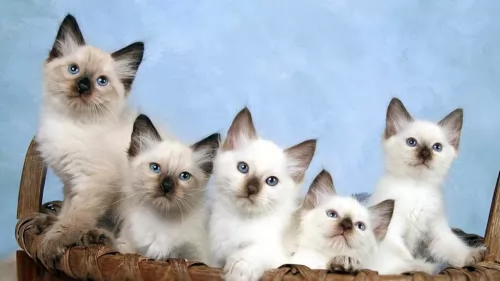 Balinese cats are fairly healthy and any health problems these cats may have are much the same as those for the Siamese cat.
Balinese cats are fairly healthy and any health problems these cats may have are much the same as those for the Siamese cat.
You want to look at diseases such as respiratory illnesses, liver failure, dilated cardiomyopathy, and eye problems.
In fact, Progressive Retinal Atrophy is one health condition that you see quite a bit with the Balinese cat.
It can be an inherited eye disease or one that is acquired. PRA is a degenerative disorder of the retina and you will need to get your cat to the veterinarian. Unfortunately, there isn’t a treatment for PRA and therefore breeders need to check their breeding stock before allowing cats to be bred.
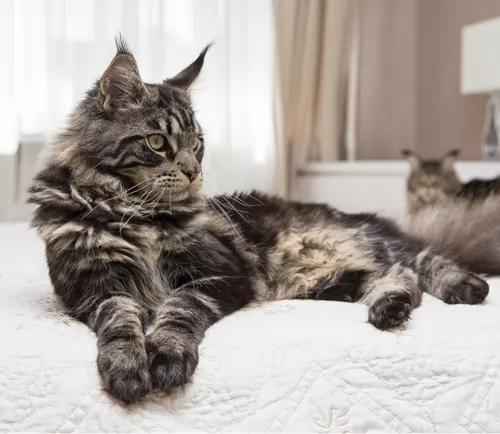 The long coat of the American Longhair will require some brushing to keep it shiny and smooth and free from dust but also to remove all those loose hairs.
The long coat of the American Longhair will require some brushing to keep it shiny and smooth and free from dust but also to remove all those loose hairs.
Make sure your cat’s food and water dishes are in an appropriate spot and keep them separate from your cat’s litter box. House train your cat immediately on how to use a litter box. Keep the litter box clean and rake up your cat's droppings regularly and dispose of them.
Before you get a cat, know that they scratch. It is normal for a cat. Provide your cat with a scratching post as well as climbing equipment such as a cat climbing tree.
Always feed your cat a meat-based diet, after all, cats in the wild are carnivores. There are some ingredients that a cat must have and they require certain amino acids found in meat-based proteins or else they could become ill.
The top quality cat foods provide cats with all the nutrients they need to keep them healthy. There are some cat owners who opt to feed their cats home-prepared meals because then they know exactly what’s going into their beloved pets food.
There are other cat owners who choose to provide their pet with a raw diet because they believe that this comes close to the cat's natural diet in the wild.
Always speak to your vet if you are in any way uncertain about the best foods for your cat. He should always have access to fresh cool water.
Check your cat for problems such as parasites such as ticks and fleas. You will also need to have your cat checked for worms. Your vet can diagnose worms with a physical exam. If it is discovered that your cat does have worms, the vet will recommend some safe, effective medications for your pet.
If you are able to, get your cat regular veterinary examinations to ensure he is always in tip-top condition.
Have your cat spayed or neutered to prevent unwelcome kittens in a world where there are just too many unwanted kittens. These procedures can have health benefits for your cat as well.
American Longhairs are lively playful cats so give your cat toys to play with to ensure mental stimulation.
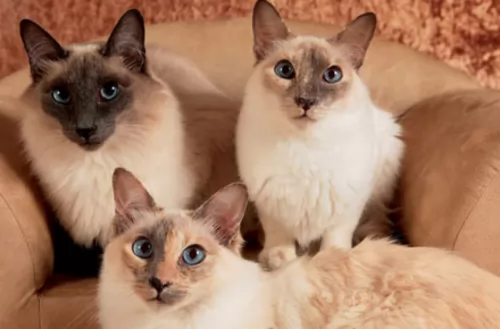 Your health depends on what you eat, and the same applies to cats too. Apart from good veterinary care for your cat, good food is of critical importance. A proper diet can eliminate veterinary expenses substantially.
Your health depends on what you eat, and the same applies to cats too. Apart from good veterinary care for your cat, good food is of critical importance. A proper diet can eliminate veterinary expenses substantially.
In feeding your cat, learn to read cat food labels and make sure your furry friend is getting the right amount of proteins, vitamins, and minerals.
There are many choices of cat foods – homemade and commercially manufactured cat foods which can be canned or you also get the dry cat kibble type of food.
If your furry friend doesn’t like a particular food, don’t punish him by taking it away and leaving him without food. Your mom tried you with different foods and you should do the same with your feline friend.
Provide your Balinese with ‘cat equipment’ - feeding and drinking bowls, grooming equipment and a nice, soft bed for him to lie in and in a quiet place.
Keep your pet’s vaccines up to date and see he gets to the vet when he is ill.
The Balinese has a coat of medium length and because the cat only really sheds seasonally, it is looked upon as a low-maintenance coat. A brush once a week will get rid of dust as well as loose, dead hair and keep the coat in good condition.